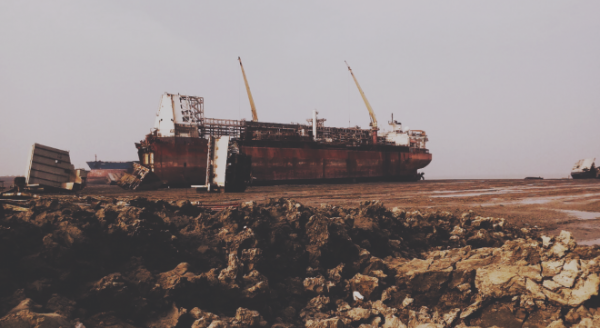The Norwegian Central Bank decided to exclude nine companies from the Government Pension Fund Global. In addition, one company has been placed under observation.
Namely, ship owners Evergreen Marine Corporation, Precious Shipping, Korea Line Corporation and Thorensen Thai Agencies, have been excluded from the Government Pension Fund Global (GPFG). The exclusion is based on the companies’ poor management of their end-of-life ships and the sale of these for dirty and dangerous shipbreaking on the beaches of Gadani, Pakistan and Chittagong, Bangladesh.
The Norwegian Central Bank has also excluded AECOM, BAE Systems, Fluor Corp and Huntington Ingalls Industries Inc because of their involvement in the production of nuclear weapons. In addition, the Executive Board has decided to maintain the exclusion of Honeywell International Inc on this criterion, while Atal SA has also been excluded due to unacceptable risk of serious or systematic violations of human rights.
The Executive Board’s decisions on exclusion were based on recommendations from the Council on Ethics. The Executive Board said that it has not conducted an independent assessment of all aspects of the recommendations, but is satisfied that the exclusion criteria have been fulfilled.
“This is the first time that shipping companies have been excluded from an investment fund based on their poor shipbreaking practices, and coming from the largest investment fund in the world, it sends out a strong signal to all financial institutions to follow suit,” said Ingvild Jenssen, Founder and Director of the NGO Shipbreaking Platform.
Whilst the exclusions so far are limited to companies that have sold their end-of-life vessels to be beached in Bangladesh and Pakistan, the reports clearly state that “to date, the Council on Ethics has not examined the way ships are broken up in India.”
Many of the concerns that the Council raised also apply to the beaching practices in Alang, India. Indeed, as stated in their reports: “One particular problem with beaching is that shipbreaking takes place when the vessels are standing in mud and sand. As a result, the pollution leaches into the ground and is washed out with the tides. Even if arrangements were put in place at the beaching sites for the treatment of asbestos and PCBs, for example, the fundamental problem of containing and collecting the pollution would be impossible to resolve”.
“Ship recycling is a heavy industry that requires industrial methods and infrastructure. We fully support the Council on Ethics conclusion that clean and safe ship recycling cannot be done on a beach,” stated Ingvild Jenssen.































































